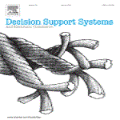Decision making in the face of a disaster requires the consideration of several complex factors. In such cases, Bayesian multi-criteria decision analysis provides a framework for decision making. In this paper, we present how to construct a multi-attribute decision support system for choosing between countermeasure strategies, such as lockdowns, designed to mitigate the effects of COVID-19. Such an analysis can evaluate both the short term and long term efficacy of various candidate countermeasures. The expected utility scores of a countermeasure strategy capture the expected impact of the policies on health outcomes and other measures of population well-being. The broad methodologies we use here have been established for some time. However, this application has many novel elements to it: the pervasive uncertainty of the science; the necessary dynamic shifts between regimes within each candidate suite of countermeasures; and the fast moving stochastic development of the underlying threat all present new challenges to this domain. Our methodology is illustrated by demonstrating in a simplified example how the efficacy of various strategies can be formally compared through balancing impacts of countermeasures, not only on the short term (e.g. COVID-19 deaths) but the medium to long term effects on the population (e.g increased poverty).
翻译:面对灾害做出决策需要考虑若干复杂因素。在这种情况下,贝耶斯多标准决定分析提供了一个决策框架。在本文件中,我们介绍如何建立一个多功能决策支持系统,以便在旨在减轻COVID-19影响的反措施战略(例如旨在减轻COVID-19效应的锁定措施)之间作出选择。这种分析可以评估各种备选反措施的短期和长期效果。反措施战略的预期效用分数反映了政策对健康结果和其他人口福祉措施的预期影响。我们在这里使用的广泛方法已经确立一段时间。然而,这一应用有许多新的内容:科学的普遍不确定性;每个备选反措施组合内制度之间的必要动态变化;以及基本威胁的迅速变化发展,所有这些都对这一领域构成新的挑战。我们的方法通过一个简化的例子加以说明,如何通过平衡反措施的影响,不仅对短期(例如COVID-19死亡),而且对人口中的中长期影响(例如贫困加剧)来正式比较各种战略的效力。




